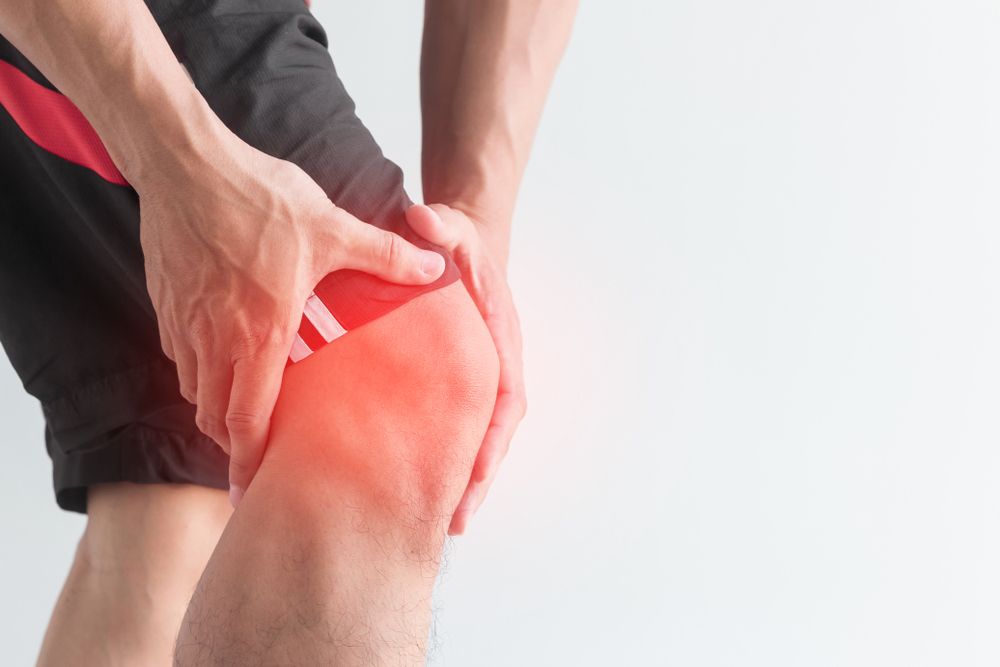[vc_row][vc_column][vc_column_text]The ACL (anterior cruciate ligament) is one of the key ligaments providing stability to the knee. The ACL is an unfortunate injury that is not uncommon in high impact, or fast-paced sports. An ACL injury is normally characterised by a cutting manoeuvre on one leg, a pop/crack heard at the time, a feeling of instability and extensive swelling that develops quickly following. An ACL injury can have varying degrees of severity and vary between people, due to different anatomy.
The choice between conservative (non-surgical) and surgical treatment can be a difficult one. Both have their advantages, depending on age, lifestyle and underlying anatomy.
Conservative Management: Conservative management is often recommended in partial tears or for tears in those that do not wish to return to a higher level of physical activity eg football/netball. The body can still function without the ACL in a lot of cases. Conservative management consists of working with a Physiotherapist in order to strengthen the muscles around the knee, work on neuromuscular control and proprioception (awareness in space), and building stability on the injured knee. Some will find they can build the strength around the knee to a degree where they do not have any concerns or issues with returning to normal activities, however, if a period of conservative management fails, a surgical pathway may be necessary.
Surgical Management: Surgical management involves harvesting a graft from nearby tendons in order to create a ‘new’ ACL. The surgical pathway is often the preference if there is additional damage within the knee eg meniscal tear, medical collateral ligament (MCL) tear. Following a period of immobilisation in a splint and crutches, an extensive Physiotherapy led program is undertaken to rebuild the strength and control in the knee in order to return to pre-injury activities. The approximate timeline for return to sport following surgery is 12-14 months.
The choice between conservative management and surgical can be a difficult one. It is best to discuss goals and lifestyle factors with your Physiotherapist and/or Orthopaedic Surgeon to decide which pathway is best for you.[/vc_column_text][ultimate_spacer height=”50″ height_on_mob=”50″][/vc_column][/vc_row][vc_row css=”.vc_custom_1693869996600{margin-left: 60px !important;}”][vc_column width=”1/3″][vc_single_image image=”4749″ img_size=”full” label=””][/vc_column][vc_column width=”1/3″][vc_single_image image=”4750″ img_size=”full” label=””][/vc_column][/vc_row][vc_row full_width=”stretch_row” wrap_container=”yes” el_id=”our-team” el_class=”colored animate”][vc_column width=”1/3″][vc_single_image image=”4443″ img_size=”full” alignment=”center” el_class=”m-b-none” label=””][ultimate_spacer height=”40″ height_on_tabs=”30″ height_on_tabs_portrait=”20″ height_on_mob_landscape=”20″ height_on_mob=”20″][porto_buttons btn_title=”BOOK ONLINE NOW” btn_link=”url:https%3A%2F%2Fhealthengine.com.au%2Fphysiotherapist%2Fwa%2Fmundaring%2Fmundaring-and-hills-physiotherapy%2Fs62196||target:%20_blank|” btn_align=”porto-btn-center” btn_title_color=”#ffffff” btn_bg_color=”#77d1b9″ btn_hover=”porto-btn-fade-bg” el_class=”m-b-none”][/vc_column][vc_column width=”2/3″][ultimate_spacer height=”0″ height_on_mob_landscape=”15″ height_on_mob=”15″][porto_ultimate_heading main_heading=”CHANDLER SMITH” alignment=”left”]
Physiotherapist & Pilates Instructor
[/porto_ultimate_heading][vc_column_text]
Chandler graduated from Curtin University with a Bachelor of Science (Physiotherapy) and chose to dive straight into private practice as this is where his passion lies. Chandler has always been a competitive sportsman throughout his life, playing high-level tennis, soccer and hockey. He has been coaching tennis in the Perth Hills area for the past 10 years, as well as playing competitive tennis pennants leagues and tournaments. He believes in the importance of an active, balanced lifestyle and brings this approach to assisting individuals get back on track as quickly as possible.
Outside of work, Chandler enjoys driving all over the country, 4x4ing and camping at the best destinations on offer.
SPECIAL INTERESTS:
Sporting injuries
Knee pain
Back pain
[/vc_column_text][/vc_column][/vc_row]

